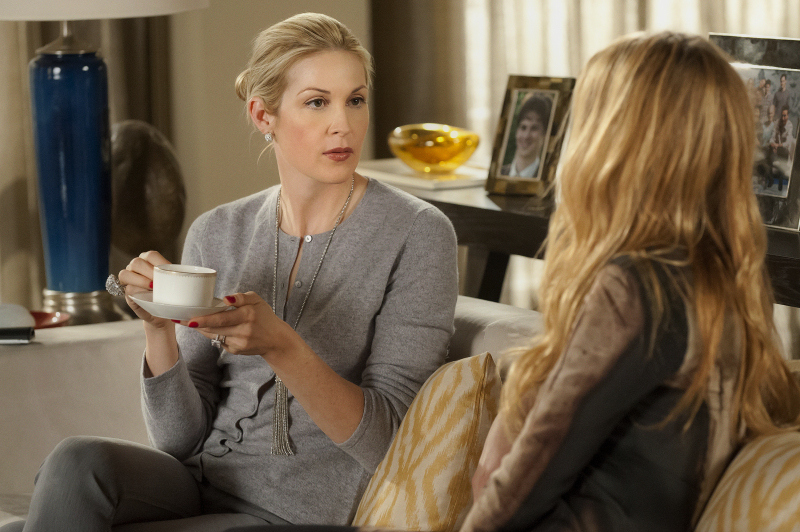
Why I Don’t Feel Sorry For “The Poor Little Rich Women”

Would you take a “wife bonus?” Or for the sake of gender equality, perhaps the better question is, would you take a spousal bonus? This bonus, written about in a recently trending New York Times article, Poor Little Rich Women, refers to what the wives in the Upper East side of New York city get when they run their homes effectively. And as such, are monetarily rewarded by their husbands.
What does running a home consist of in this context? It is a sort of professional “mommy” status. Where you ensure that one’s children get into the best schools, that one sits on charity boards within the community that are small to medium-sized, but show an adequate involvement. It is dinner parties, luncheons, and a supposedly lavish lifestyle. Ladies who run their homes in the words of Wednesday Martin, the article author, “like a corporation.” But not by force, but rather by choice. These ladies are alums of prestigious universities who chose homemaking it seems as a profession, over other forms of work. They are not in dilemmas or at least they weren’t.
While the author seems to come to the conclusion that these women who live these lavish lifestyle are essentially to be pitied because they do not have autonomy over their income like they would if they were to be working away from the home, I am not willing to concede that so kindly. For me, there is much to unpack in this identity, in these lifestyles. It is an examination of all The Real Housewives Shows that are so famous or maybe infamous. Except this is not reality television, this is real.
![]()
I know women like this. Not very well but I know them from a distance. I have always known them. Admittedly – I am one of those kids who attended private schools my whole life. So even when I didn’t know that I knew them, they were always around. Looking back, I guess I have always found them both fascinating and boring. In the context of my life these days, I mostly associate these women with the women who go to my gym or health club.
Indeed I pay for one of those bougie health clubs where the women all wear Lululemon and there is a rooftop that overlooks Chicago’s skyline with a renown chef. The classes are wonderful too – they really are. And I don’t quite remember why I was attracted to it. But I do often make jokes that if The Real Housewives ever filmed in Chicago, they would film it at my health club. Perhaps I am just a junkie for social observation of interesting identities.
But I doubt it, I tend to avoid “them” by ensuring I take an early morning or a late night class. But if you ever take a 10 a.m. class at my health club, you will see women who fit the script that Martin refers to in her piece. Women who you don’t know at all, but women who you imagine their big concern of the day is somewhere between making sure their daughter gets into the best skating training class possible. Or that their kale salad is made to perfection. It’s judgmental. You don’t know any of these women and yet you imagine that their lives consist of these things. How unfair; how honest.
![]()
Speaking with both men and women this week about this article, I found that men found the idea of women running their homes in such a way, and for pay, thought of it as horrific. More so than women. In fact, my rather unscientific data collection revealed that many women believed that it was quite fair. Putting forth the idea that if being a house wife is a full-time job, the justification is that these women ought to get paid if they can be paid. Most men I talked to, both single and in committed relationships, including married – who admittedly were mostly not in this economic bracket – were more uncomfortable with the whole arrangement. Women, it seemed were almost defensive.
I guess I understand the position to some extent. That position that if a woman commits her life to such an endeavor and it is as exhausting as any job, then why not? Why shouldn’t she get a bonus if her husband can afford it? But it’s that position that makes me so put off. Women all around the world who have to work and perform the double duty of also running a home in which they fight tooth and nail for their children, however unequal it is in comparison to their husband, do not get a “bonus.”
I grew up with a mother who indeed was the quintessential “superwoman” but who I just thought of as the typical woman among our close circles – PhD holder with five children; a woman who worked that double duty. However unfair it was, looking back, she did it and as she told me when I talked to her, she would do it again. My mother, a woman of her time and culture – traditional, African – thought a woman’s work never ends. A bonus, in her imagination, would be an insult, not a reward. I wonder if she is why I would be so uncomfortable with this arrangement.
![]()
In the end, neither you or I nor the women on the Upper East side of New York city or the women who are professional stay at home mothers or housewives have to make this arrangement – for a bonus, that is. The women who do this are well aware of their choice it seems. They are in a better position to make this choice because of mere economics. So be it far from me to pity them. So I do not feel sorry for them even if it might feel like they are “working” for their husbands. But I do not envy them either, as some might. After all, their choices come at a price. One that I am not willing to pay (as far as I know).
As for wife bonuses, well, it does leave the person who is interested in a fair and equal partnership with a spouse feeling a tad uneasy. Shouldn’t an equal partnership amount to equal access to resources, irrespective of outcome, even where duties might vary? But I do question how many marriages in general are on a foundation of equality, especially economically. It seems that the person who controls the economics or controls more of the economics, tends to have more say in a marriage. It is the same in business. So in my final analysis, I guess I must draw the boring conclusion of this arrangement as, “to each his or her own.”
Perhaps it works for some people. And as my colleague Alex Magnin puts it, “It lacks in grace but it’s not the worse thing that has ever happened.” ![]()











